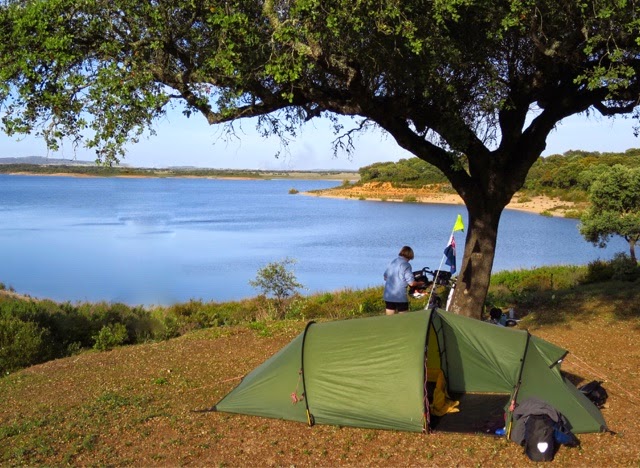Think of a young nun and a dashing French count. Think seduction and then complete and utter abandonment. She is devastated.
She writes to him - at first with forlorn hope, then with a growing realisation that he is never coming back. Finally, she accepts life must go on without him.
There are just three letters, but when they were published in 1669 they created a literary sensation. Readers were shocked, titillated and couldn't get enough of them.
The Naughty Nun - Sister Mariana Alcoforado came from a comfortably well off family. It may be that she met Count Chamilly through her brother as both men were in the military.
Sister Mariana Alcoforado was 25 and a resident of Beja's Convento de Nossa Senhora da Conceição when she met her count. Today, the convent and its neighbouring church house a regional museum. But up on the first floor, past the Roman coin collection and the Roman stonework, there is a window with a terracotta grill. It is from here that Mariana first set eyes on Count Chamilly.
The first floor window through which Mariana first saw Count Chamilly.
What followed is not clear, although it's obvious the Count charmed Mariana and before long found his way into her bed.
How he managed to steal his way into the convent is hard to imagine - we made enough noise walking on the stone floors without wearing clumpy riding boots. And surely he couldn't have left his boots outside on the front door step where they might have been spotted by the Mother Superior doing her nightly rounds.
Perhaps he carried them in one hand, a candle in the other and a single stemmed red rose in his teeth.
However the two carried out their liaison it ended in tears.
Afterwards she wrote "... I am furiously jealous of all that gives you pleasure, and comes near to your heart and fancy in France. I know not why I write to you. I perceive that you will only pity me, and I wish for none of your pity. I hate myself when I look back on all that I have sacrificed for you. I have lost my honour. I have exposed myself to the anger of my parents, to all the severity of the laws of this country against religious, and finally to your ingratitude, which has seemed to me the greatest of all my evils."
Oh dear. But the terrible romance lives on in The Letters of a Portuguese Nun, available free on line.
According to one guidebook, the letters were the Fifty Shades of Grey of its day. But before anyone is tempted to rush off for the download, here's another sample.
"I know not what I am, or what I do, or what I wish for. I am torn asunder by a thousand contrary emotions. Can a more deplorable state be imagined? I love you to distraction, and therefore I spare you sufficiently not to dare to wish that the same emotions would trouble you. I should kill myself or die of grief without were I to be assured that you were never having any rest, that your life was as anxious and disturbed as mine...."
And so Mariana goes on. It makes for a pretty depressing read. But who knows, when they get round to the film they might be able to do something with it.
The Stoker's Quotable Quotes
Judy (the Stoker): "I just put on your hat and thought what a wonderful life."
Judy: "Some people go searching for Rembrandts, we go searching for out of the way campsites."
Judy: "I must have had more wine than I thought last night. I blew up my (air) mattress and it was quite slobbery."
Judy: "That stork is going to think you're stalking it with that camera."
Judy: "Oh, I can smell my armpits. A little washing wouldn't go astray."

















